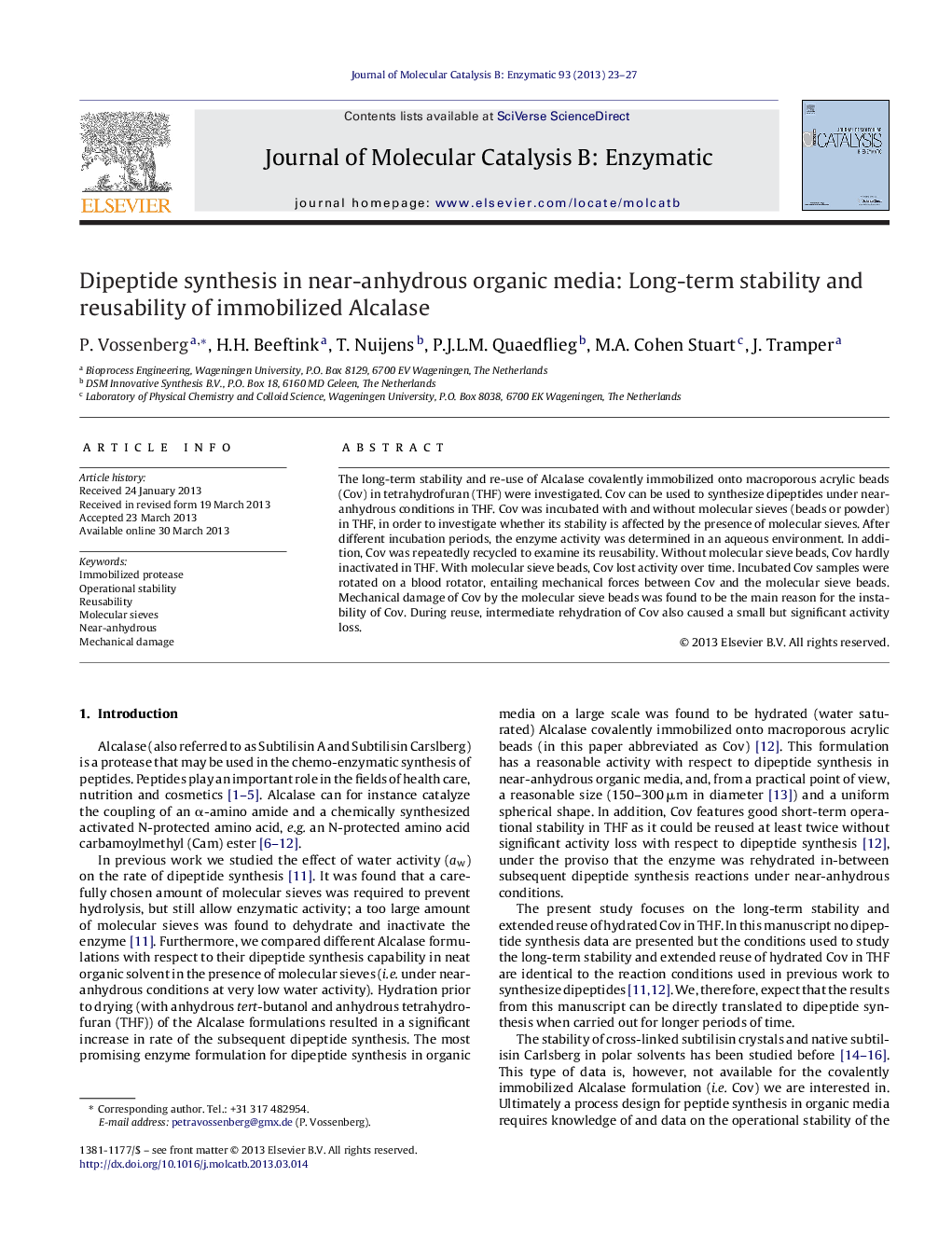| Article ID | Journal | Published Year | Pages | File Type |
|---|---|---|---|---|
| 69572 | Journal of Molecular Catalysis B: Enzymatic | 2013 | 5 Pages |
•Alcalase covalently immobilized onto acrylic beads (Cov), itself, hardly inactivates in THF.•With molecular sieve beads, Cov loses activity over time in THF.•The instability of Cov is mainly caused by the mechanical damage of Cov by the molecular sieve beads.•Intermediate rehydration of Cov, required for its reuse, leads to some activity loss.
The long-term stability and re-use of Alcalase covalently immobilized onto macroporous acrylic beads (Cov) in tetrahydrofuran (THF) were investigated. Cov can be used to synthesize dipeptides under near-anhydrous conditions in THF. Cov was incubated with and without molecular sieves (beads or powder) in THF, in order to investigate whether its stability is affected by the presence of molecular sieves. After different incubation periods, the enzyme activity was determined in an aqueous environment. In addition, Cov was repeatedly recycled to examine its reusability. Without molecular sieve beads, Cov hardly inactivated in THF. With molecular sieve beads, Cov lost activity over time. Incubated Cov samples were rotated on a blood rotator, entailing mechanical forces between Cov and the molecular sieve beads. Mechanical damage of Cov by the molecular sieve beads was found to be the main reason for the instability of Cov. During reuse, intermediate rehydration of Cov also caused a small but significant activity loss.
Graphical abstractFigure optionsDownload full-size imageDownload as PowerPoint slide
